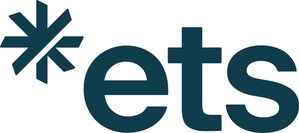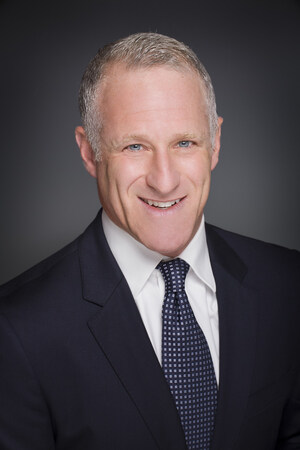STANFORD, Calif. and PRINCETON, N.J., April 17, 2023 /PRNewswire/ -- The Carnegie Foundation for the Advancement of Teaching and ETS today announced a new partnership designed to radically transform education assessment across the United States. In collaboration with practitioners and policymakers nationwide, the partnership aims to create a robust, scalable suite of assessment and analytic tools that captures the full range of skills required for American students to succeed in K–12, postsecondary education and beyond.
Since 1906, the Carnegie Unit or "credit hour" has served as the bedrock currency of the educational economy. It defines what "counts" as learning, shapes the nature of what is and is not assessed, and determines the basic organization of secondary and postsecondary education. Where seat time has served as the primary function of learning outcomes, it is increasingly clear that the knowledge, skills and dispositions needed to succeed in the 21st-century economy are not singularly demonstrated through time on task — whether sitting at a desk or on a digital platform. It is time to fundamentally rethink how learning progressions and mastery are demonstrated, the methods of measurement used and how attainment of skills is communicated throughout a learner's journey. The Carnegie Foundation and ETS are proposing that the new currency of education should be based upon meaningful skills and accomplishments demonstrated through assessment.
"Current assessments fail to capture what we know matters most, and do not provide key stakeholders — students, parents and educators — with the insights they need to accelerate learning," Carnegie Foundation President Timothy F.C. Knowles said. "How we demonstrate progress must become competency-based, and families and educators should be supported by assessments that capture learning whether it occurs in the classroom, after school, on a farm, in the workplace, or in an internship."
"It is time for a seismic shift in education that puts the focus on skills. And not just cognitive skills accounted for in curriculum written for 20th-century skills and work, but the rich tapestry of skills that enable individuals to thrive in the 21st century," said Amit Sevak, President & CEO of ETS. "This is a fundamental paradigm shift from time-based to skill-based units of learning. Smarter assessments are the key to unlock the future."
Together, Carnegie and ETS will design, pilot and distribute a new suite of assessments that measure the essential affective, behavioral and cognitive skills necessary for success in school and the 21st-century economy. The offering will be designed to provide actionable evidence of progress to students, parents, educators and states, and will leverage advances in assessment technology to capture and communicate student skill development, whether it occurs inside or outside the classroom.
"The Carnegie Foundation and ETS are tackling a central issue that is impeding the progress of young people nationwide, one which needs a comprehensive solution," says Ted Mitchell, President of the American Council on Education (ACE). "It is timely that ETS will leverage its technical assessment strength and scalability, while Carnegie will draw on historical contributions to the field to support student, teacher, and family-voice in assessment development, field-testing and implementation. I am thrilled that they have engaged organizations like ACE to ensure we are working together across the education ecosystem to address this critical national challenge."
Carnegie and ETS will design and pilot this offering in close partnership with key stakeholders — including students, parents, teachers, education leaders, civil rights organizations and employers. Stakeholders will be engaged at each step of the process — from development, testing, implementation and determining impact.
"One year ago, we partnered with The Carnegie Foundation to build a new educational architecture of secondary schools," said Russlynn Ali, former Assistant Secretary for Civil Rights at the U.S. Department of Education and now CEO of XQ Institute. "Building better assessments that focus on the real skills young people need to thrive in postsecondary school and their career is critical to supporting our economy, democracy and social fabric. That's why XQ is excited to bring our tools, our ideas and our national network of extraordinary educators to support this important work."
About The Carnegie Foundation
The Carnegie Foundation for the Advancement of Teaching was chartered by an act of Congress in 1906. Since then, it has pioneered a broad range of transformative advancements in K–12 and higher education, including the establishment of TIAA-CREF; the Carnegie Unit; standards for schools of law, medicine, education, and engineering; the GRE; Pell Grants; the Carnegie Classifications; and the use of networked improvement science to develop the educational sector. The Carnegie Foundation's mission is to catalyze transformational change in education so that every student has the opportunity to live a healthy, dignified, and fulfilling life.
About ETS
We believe in the life-changing power of learning. For the last 75 years, we've been driven by a vision of what's possible when all people can improve their lives through education. It's why our uncompromising commitment to equity and fairness is behind everything we do. ETS serves learners, educators and government agencies by providing measurement solutions, and conducting research, analysis and policy studies. ETS develops, administers and scores tens of millions of tests annually — including the TOEFL® and TOEIC® tests, the GRE® tests and The Praxis Series® — in more than 200 countries, at over 9,000 locations worldwide. www.ets.org
SOURCE ETS

WANT YOUR COMPANY'S NEWS FEATURED ON PRNEWSWIRE.COM?
Newsrooms &
Influencers
Digital Media
Outlets
Journalists
Opted In




Share this article